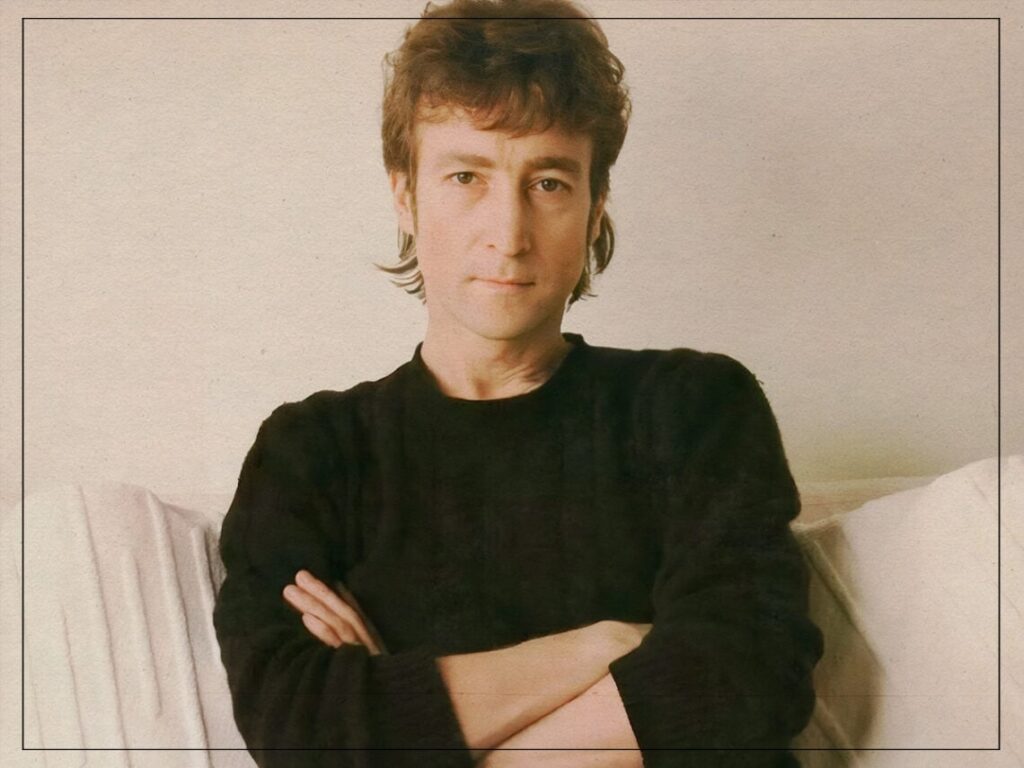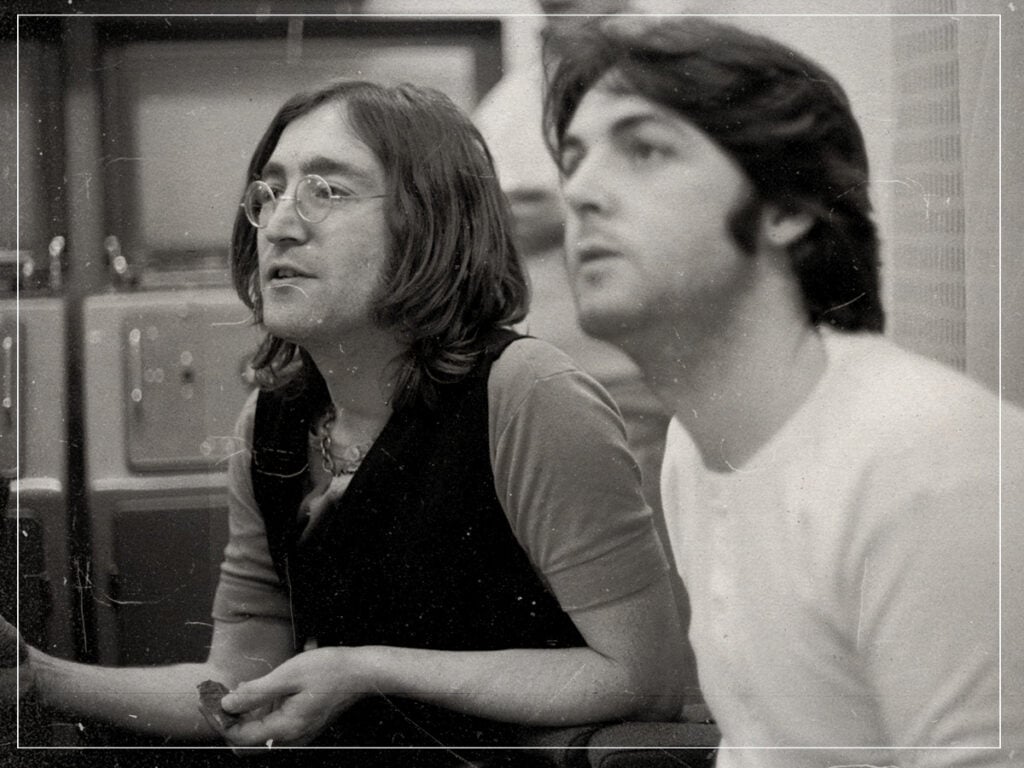The Beatles song that made John Lennon leave the studio in disgust: “John went ballistic”
 Posted On
Posted On
(Credits: John Lennon)
The relationship between John Lennon and Paul McCartney was initially a creative free-for-all. The two worked incredibly closely within The Beatles, often “eyeball to eyeball”, and delivered a plethora of songs that they would both stand by. Though they were pop hits, they were also chart-toppers the band could be proud of.
The duo created these songs in the fury of a frenzied state that can only be generated by excited creatives finally being given the platform necessary to express themselves. Sure, the group were important, but it was the songwriting partnership that made The Beatles stand out and gave them their best shot at success. The ability of Lennon and McCartney to sit down with each other and write songs would be the very making of the Fab Four. Soon enough, the creative partnership began to split, and the duo started writing songs on their own rather than in the hotel rooms and tour buses where they had crafted their first efforts.
It meant when the Fab Four were recording their later albums, each member of The Beatles arrived at the studio with a set of songs ready to lay them down on record. While the songwriter would always allow the other band members to drop in ideas and perhaps fatten certain parts of the track, the general rule was that if you wrote the song, you sang the song, and you directed the arrangement. It was the perfect scenario for someone like Paul McCartney.
An accomplished musician across most instruments, McCartney became infatuated with writing songs and could barely pause for breath when in his creative stride. The songwriter within McCartney had quickly developed into a powerhouse of artistry, championing brand new studio techniques, harnessing his whimsical side to create a character or write tunes as if he was penning letters. It would showcase an artist finding their grounding.
Arguably, that moment arrived on the band’s 1967 album, Sgt. Peppers, a project in which Macca enacted his concept for the album and turned the most famous band in the world into something else. He succeeded, and the LP remains one of the group’s most widely loved albums—but it didn’t quell any bad feelings for the rest of the band. Lennon was often quoted saying that Sgt. Pepper was his least favourite Beatles record because of the command McCartney took of the sessions. George Harrison was not a fan of the record either. He felt the concept album had turned them into a puppet worker bee: “It became an assembly process—just little parts and then overdubbing,” he felt they had lost the edge.
By the time the band regrouped for the next album, known most affectionately as The White Album, things had drastically changed. Lennon was once again trying to take the lead on the LP, and with George Harrison now arriving at the party as an equally gifted songwriter, the writing was on the wall for McCartney’s vision of The Beatles. His time as the de facto creative leader of the group was done for the meantime. But that didn’t mean he still couldn’t find a spot for his penchant for music hall patter, and there’s one song that sticks out among the rest — ‘Ob-La-Di Ob-La-Da’.
“I had a friend called Jimmy Scott who was a Nigerian conga player, who I used to meet in the clubs in London,” recalled McCartney for Anthology. “He had a few expressions, one of which was, ‘Ob la di ob la da, life goes on, bra’. I used to love this expression… He sounded like a philosopher to me.”

Using a chance meeting with an interesting character was like lighting a fuse within McCartney’s imagination — add to it an unusual starting point lyrically, and it was an invitation McCartney couldn’t turn down. “He was a great guy anyway, and I said to him, ‘I really like that expression and I’m thinking of using it,’ and I sent him a cheque in recognition of that fact later because even though I had written the whole song and he didn’t help me, it was his expression”.
“It’s a very me song,” admitted McCartney, “In as much as it’s a fantasy about a couple of people who don’t really exist, Desmond and Molly. I’m keen on names too. Desmond is a very Caribbean name.”
But while the song’s inception may not have been to Lennon’s taste, he much preferred the gritty realism of the world to be shown in his songs; it was the recording of the song that would send him storming out of the studio in a rage. Describing the song as “granny shit”, Lennon was extremely dissatisfied with working on the track. At the time, he was struggling with heroin addiction and was completely infatuated with Yoko Ono, a combination that would see him at his wits’ end with the song.
It didn’t help that, the perfectionist he was, McCartney demanded that the band record and re-record the song with many different arrangements. After a few remakes and their balance engineer Geoff Emerick on the verge of a breakdown, Lennon snapped when he realised that McCartney was yet again setting up for a re-record of the song. “John went ballistic,” Geoff Emerick relates. “Ranting and raving, he headed out the door, with Yoko trailing closely behind, and we thought that we’d seen the last of him that evening. But a few hours later, he stormed back into the studio, clearly in a highly altered state of mind.” When he returned, he actually turned the song into a hit.
“John Lennon came to the session really stoned, totally out of it on something or other,” remembered Rich Lush, “And he said, ‘All right, we’re gonna do ‘Ob-La-Di, Ob-La-Da’. He went straight to the piano and smashed the keys with an almighty amount of volume, twice the speed of how they’d done it before, and said, ‘This is it! Come on!’ He was really aggravated. That was the version they ended up using.”
Whether it was the fact that McCartney’s longtime collaborator had finally returned to help him find his creative path again or perhaps just Lennon’s aggression, the recording of that session eventually became the single we know today. This proves that while Lennon clearly hit the keys with serious venom, on record, the band sounded like they were having the best of times, and appearances can be deceiving.
Geoff Emerick would quit the sessions following the recording of ‘Ob-La-Di, Ob-La-Da’, and The Beatles would never really recover from their issues. While the facts remain that the band were always likely to be torn apart by their talent, one key point of this song, a song Harrison and Starr hated working on and that Lennon called “granny shit”, is that it was eventually released as a single from the album with the epic ‘While My Guitar Gently Weeps’ as the B-side. It’s proof that, despite what fans may have hoped, The Beatles were always set for disbandment.
[embedded content]
Related Topics


